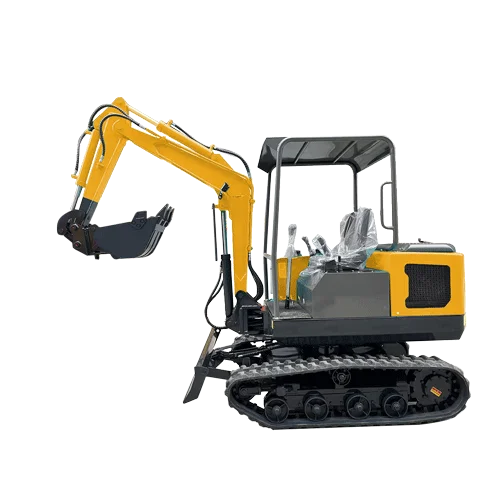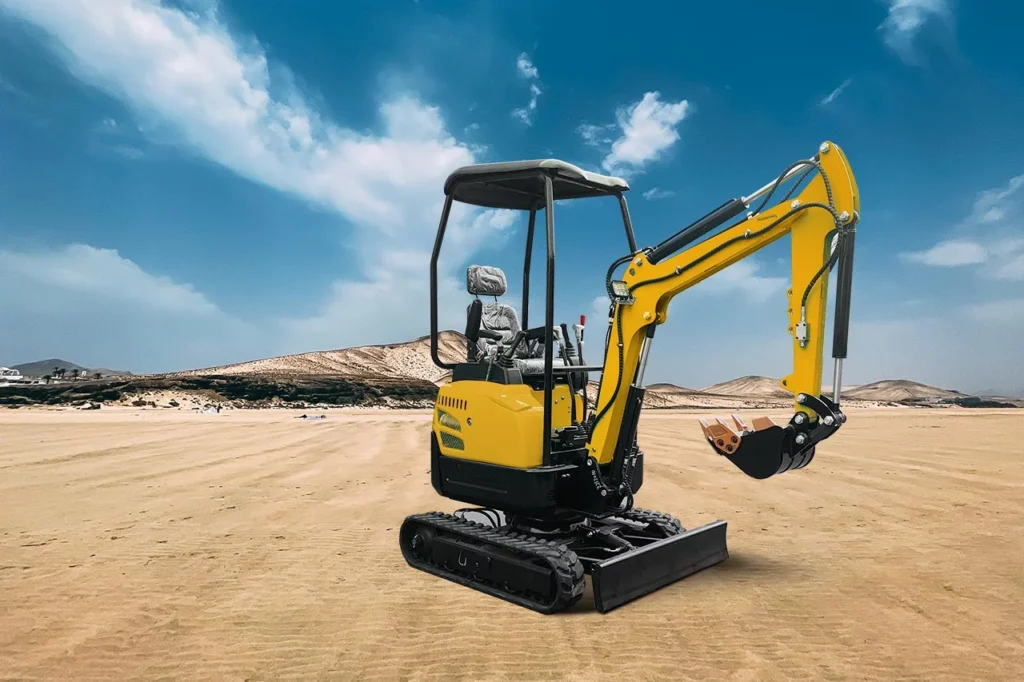Welcome to My Blog!
Before we dive into the content, I’d love for you to join me on my social media platforms where I share more insights, engage with the community, and post updates. Here’s how you can connect with me:
Facebook:https://www.facebook.com/profile.php?id=100087112105480
LinkedIn:https://www.linkedin.com/showcase/99327366/admin/dashboard/
Now, let’s get started on our journey together. I hope you find the content here insightful, engaging, and valuable.
Table of Contents
Introduction

An excavator small size is a compact and highly efficient machine designed for tasks that require precision, maneuverability, and flexibility in limited spaces. Unlike larger excavators, which may struggle in tight environments, small-size excavators are ideal for urban settings, residential work sites, and projects where space is restricted. Their ability to perform in confined areas, combined with their efficiency, makes them an attractive option for both small-scale and large-scale construction projects.
In this post, we will delve into the key reasons why an excavator small size could be the best investment for your next project, offering insights into its capabilities, advantages, and practical applications.
Improved Maneuverability in Tight Spaces
The Importance of Space in Construction Projects
One of the main benefits of choosing an excavator small size is its enhanced maneuverability in tight spaces. In urban construction and residential projects, space is often limited, which can make it difficult for larger machinery to operate effectively. Small-size excavators are designed to navigate through narrow passages, small doorways, and congested areas with ease, ensuring that they can reach the job site even when space is at a premium.
Better Reach and Flexibility
These compact excavators can be fitted with different attachments, such as hydraulic hammers, augers, and buckets, to tackle a wide range of tasks in confined spaces. Whether you are digging trenches, removing debris, or excavating for landscaping purposes, an excavator small size provides the flexibility to get the job done in areas that other machines simply cannot access.
Cost-Effectiveness for Small and Medium Projects

Reduced Operational Costs
Small-size excavators are more cost-effective than their larger counterparts. The operational costs associated with an excavator small size are significantly lower due to factors such as reduced fuel consumption, maintenance, and transportation fees. Smaller excavators require less fuel to operate, helping to keep your overall project costs down.
Lower Rental and Purchase Prices
The upfront cost of purchasing or renting an excavator small size is also typically lower compared to larger models. For smaller construction projects, this makes a small-size excavator an economical choice that doesn’t sacrifice performance or capability. Businesses looking to save on equipment costs will find that a small-size excavator offers great value for the money.
Easy Transportation and Storage
Convenience of Transport
Another advantage of opting for an excavator small size is the ease with which it can be transported. These machines are lighter and more compact, making them easier to load onto trailers and transport between job sites. The reduced weight also means that you won’t need a heavy-duty truck to move the equipment, lowering transportation costs and ensuring faster setup times.
Convenient Storage
When the job is done, small-size excavators require much less storage space compared to their larger counterparts. If you’re working in an area with limited storage facilities, a small-size excavator can be a perfect fit. You won’t need a large yard to store the equipment, and it can be easily parked in a smaller garage or storage area.
Greater Precision and Control
Ideal for Delicate Tasks
For projects that require a high level of precision and control, such as landscaping, foundation work, or trenching, an excavator small size excels. The smaller size of the machine allows operators to have more control, ensuring that they can perform delicate tasks without disturbing the surrounding environment. This makes it an ideal choice for projects where accuracy is essential.
Enhanced Operator Comfort
Small-size excavators also tend to have better visibility from the operator’s seat, which contributes to improved control during operation. With the ability to work in tight spaces and execute precise movements, operators can perform tasks with greater ease, resulting in higher productivity and fewer mistakes.
Versatility and Adaptability

Wide Range of Attachments
An excavator small size is incredibly versatile, capable of handling a variety of tasks beyond traditional digging. With the right attachments, it can function as a jackhammer, a trencher, a post-hole digger, or even a snowplow. This makes it an excellent all-in-one solution for multiple types of construction and landscaping jobs, reducing the need for additional specialized machinery.
Multi-Tasking Ability
In addition to its physical versatility, a small-size excavator can be used for a range of functions in different industries. Whether it’s for residential construction, municipal projects, roadwork, or landscaping, the machine’s adaptability ensures that it can meet the needs of various job sites. This multi-tasking capability makes it a valuable asset for contractors looking to maximize efficiency across different areas of their business.
Table: Comparison of Small-Size Excavators vs. Larger Excavators
| Feature | Excavator Small Size | Larger Excavator |
|---|---|---|
| Size and Weight | Compact, lighter | Larger, heavier |
| Maneuverability | Excellent in tight spaces | Limited in confined areas |
| Fuel Efficiency | More fuel-efficient | Less fuel-efficient |
| Cost (Initial Investment) | Lower cost | Higher cost |
| Storage Requirements | Less space required | Requires more storage space |
| Versatility (Attachments) | High (many attachments) | Moderate (fewer attachments) |
| Transportability | Easier to transport | Harder to transport |
Conclusion: Why You Should Choose an Excavator Small Size for Your Project

An excavator small size offers numerous advantages for construction and landscaping projects, including improved maneuverability, cost-effectiveness, and versatility. Whether you’re dealing with tight spaces, working on a small-scale project, or looking for an all-in-one solution, a small-size excavator is a valuable asset that can save time, money, and effort.
When selecting equipment for your next job, consider the unique advantages that a small-size excavator provides. From enhanced precision and control to easier transportation and storage, this compact machine is designed to meet the needs of a variety of industries and project types.
FAQ
What types of projects are best suited for an excavator small size?
An excavator small size is ideal for projects in tight spaces, such as residential landscaping, urban construction, and trenching. It is also well-suited for tasks that require precision, such as digging for foundations or utility installation.
Can a small-size excavator handle heavy-duty tasks?
While small-size excavators are not designed for extremely heavy-duty tasks, they can handle a wide range of medium-duty jobs with the right attachments. They are especially effective for tasks that require precision and maneuverability in limited spaces.
How much does it cost to rent or purchase an excavator small size?
The cost of renting or purchasing an excavator small size varies depending on the model, brand, and region. However, small-size excavators are generally more affordable than larger models, both in terms of initial investment and operational costs.
How do I maintain a small-size excavator?
Routine maintenance for a small-size excavator includes checking and changing the oil, inspecting hydraulic systems, cleaning filters, and monitoring tire or track wear. Regular maintenance ensures optimal performance and extends the lifespan of the equipment.
Is a small-size excavator easier to operate than a larger model?
Yes, small-size excavators are generally easier to operate, especially in confined spaces. They offer better visibility and more precise control, which allows operators to complete tasks with greater accuracy and ease.
